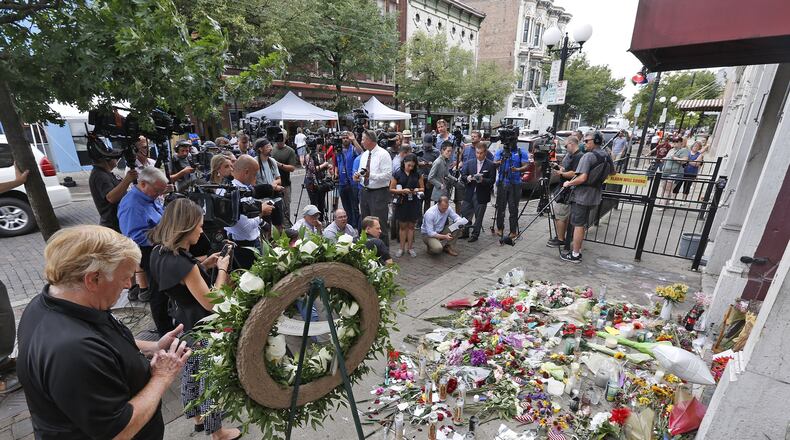What he found on East Fifth Street wasn’t unlike things he’d seen in combat.
“About a month ago I was talking with my mom, and I said that I wished (civilians) would be able to experience or understand what we went through,” Wolfe said. “I wish I could take that back now.”
Jeffrey Cigrang, a clinical psychologist and associate professor in the school of professional psychology at Wright State, said that it is not surprising that veterans with combat experience or with PTSD would experience distress after the shooting.
“For veterans, triggering experiences could be gunfire, nighttime, the sense of threat.,” Cigrang said.
Even for local veterans who weren’t in the Oregon District that night, seeing the shooting on the news can be triggering.
“There is so much of it on the news and social media, it’s hard to get away from it. For many veterans who were deployed in Afghanistan it is hard to watch the news,” Cigrang said.
While it is normal for veterans’ PTSD to be triggered after the shooting, Cigrang said if symptoms don’t settle down veterans might need to get help. Veterans should seek treatment from someone who is competent in evidence-based talk therapy for veterans, he said.
Since the Oregon District mass shooting, the 26-year-old said he’s struggled with his PTSD. When he goes to restaurants he sits facing the door, so he can watch who comes in and out. He said he hadn’t eaten the last week because his mind has been on other things.
“Connor Betts makes me feel like as a Marine I failed,” Wolfe said.
Wolfe said that when he joined the Marines he took an Oath of Enlistment. It never expires, so he said the fact Betts was able to hurt so many people makes him feel that he didn’t uphold his oath.
“We promise to protect the country from enemies,” Wolfe said. “I never thought I’d have to deal with a domestic enemy.”
Wolfe was in Hole in the Wall with several friends when Betts started firing. Betts killed nine people and wounded many others, including Nickole Duke. She was shot twice in the head.
Wolfe hopped over the front gate of the bar, ready to fight.
“It’s all I know. And I was good at it,” Wolfe said. “The only problem was I didn’t have my rifle.”
He said he ran right past Betts.
Instead of fighting, Wolfe rushed to help Duke, taking his shirt off to put pressure to wounds on her head. A retired nurse also rushed to help Duke.
Other veterans were in the Oregon District that night, doing the same thing as Wolfe.
“I saw a lot of good people helping good people,” Wolfe said.
Wolfe said he has spent a lot of time with Duke since the shooting, striking up a friendship.
He’s also spent time talking with people about what he saw that night in an effort to cope with the tragic events and his PTSD.
“We have to win our own personal battles,” Wolfe said.
About the Author

